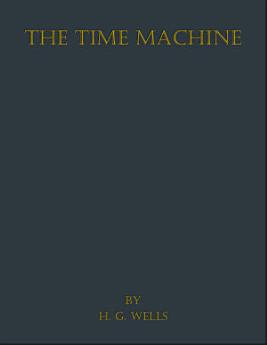The Time Machine
এপ্ৰিল ২০২৪ · neobooks
ইবুক
136
পৃষ্ঠা
family_home
যোগ্য
info
reportমূল্যাংকন আৰু পৰ্যালোচনা সত্যাপন কৰা হোৱা নাই অধিক জানক
এই ইবুকখনৰ বিষয়ে
A Victorian scientist and inventor creates a machine for propelling himself through time, and voyages to the year AD 802701, where he discovers a race of humanoids called the Eloi. Their gently indolent way of life, set in a decaying cityscape, leads the scientist to believe that they are the remnants of a once great civilization. He is forced to revise this assessment when he comes across the cave dwellings of threatening ape-like creatures known as Morlocks, whose dark underground world he must explore to discover the terrible secrets of this fractured society, and the means of getting back to his own time. A biting critique of class and social equality as well as an innovative and much imitated piece of science fiction which introduced the idea of time travel into the popular consciousness, The Time Machine is a profound and extraordinarily prescient novel.
লিখকৰ বিষয়ে
Herbert George Wells, often referred to as H.G. Wells, is an English writer. He was born in England in 1866. He grew up in a poor family. Wells is known for his science fiction books. Some of his most famous books are "The Time Machine", "The War of the Worlds" and "The Invisible Island". Wells is often referred to as one of the "fathers of science fiction". Wells was not only a writer, but also a teacher and historian. Wells died in 1946.
এই ইবুকখনক মূল্যাংকন কৰক
আমাক আপোনাৰ মতামত জনাওক।
পঢ়াৰ নির্দেশাৱলী
স্মাৰ্টফ’ন আৰু টেবলেট
Android আৰু iPad/iPhoneৰ বাবে Google Play Books এপটো ইনষ্টল কৰক। ই স্বয়ংক্রিয়ভাৱে আপোনাৰ একাউণ্টৰ সৈতে ছিংক হয় আৰু আপুনি য'তে নাথাকক ত'তেই কোনো অডিঅ'বুক অনলাইন বা অফলাইনত শুনিবলৈ সুবিধা দিয়ে।
লেপটপ আৰু কম্পিউটাৰ
আপুনি কম্পিউটাৰৰ ৱেব ব্রাউজাৰ ব্যৱহাৰ কৰি Google Playত কিনা অডিঅ'বুকসমূহ শুনিব পাৰে।
ই-ৰীডাৰ আৰু অন্য ডিভাইচ
Kobo eReadersৰ দৰে ই-চিয়াঁহীৰ ডিভাইচসমূহত পঢ়িবলৈ, আপুনি এটা ফাইল ডাউনল’ড কৰি সেইটো আপোনাৰ ডিভাইচলৈ স্থানান্তৰণ কৰিব লাগিব। সমৰ্থিত ই-ৰিডাৰলৈ ফাইলটো কেনেকৈ স্থানান্তৰ কৰিব জানিবলৈ সহায় কেন্দ্ৰত থকা সবিশেষ নিৰ্দেশাৱলী চাওক।





